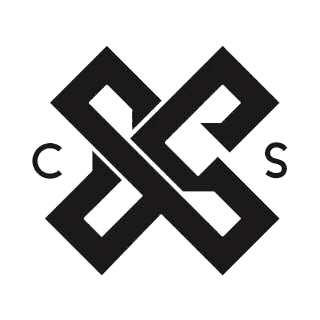Art of the Side Hustle: Or, Why I'll be a Barista Forever
Maggie Slepian
I feel like when someone refers to their “side hustle,” it’s something they do at home on the side, and their job is the place they go to. Mine is the opposite. My full-time job is sitting sideways in an armchair like a shrimp, balancing my laptop on the arm of the chair and my coffee mug on my knee, which is precisely the position I am in now.
My side hustle is when I actually leave the house to work at a local coffee shop. Like, not work from a coffee shop, where I can occasionally be found wearing noise-canceling headphones and squinting at the specs for new trail shoes. I work at a coffee shop, where customers come up to the counter and ask me “Can I get an uhhhhhhhhhhhhhh…. an uhhhh…. what’s a bee sting?”
I picture my barista job like the pale writer crawling out of a cave to attend the requisite weekly hours interacting with other humans. It’s really good for me, and I highly recommend this for remote workers who find themselves becoming increasingly weird and unsocialized.
This coffee shop was my first job in Montana when I moved here in 2012—the year most of my current barista coworkers were just learning how to crawl. There were three shops owned by the same family, and I worked at the big one downtown. We had drive-through headsets, a full deli, a spacious seating area, and a hulking chrome espresso machine. I had never worked in the service industry before, but I was social enough that it clicked. I loved the fast pace, rapid-fire interactions, and working for tips became a fun game.
Before long, I could eyeball the speed at which a shot was pulling and know if it would be good, I could temp milk by tapping the pitcher, and I started to recognize cars three or four back in line, knowing the regulars’ orders and getting drinks ready by the time they reached the window.
I worked full-time at the coffee shop for a year before sashaying off to the world of better tips and short skirts at a dinner-only restaurant (where I was promptly fired for rolling my eyes at a customer). From there, I worked a few other jobs, hiked the AT, worked in an office (lol), and then got my first fully remote job in 2016. And boy was I lonely. I missed structure, I missed socializing, and I missed having a pocketful of cash. So I emailed the owner, asked if he remembered me (he did), and then asked if it would be possible to pick up a shift or two per week at the smaller shop closest to my house.
And that was it! For the past six years, I’ve worked sporadically as a barista for this one locally owned shop. I have such a good relationship with the owner, when I leave for several months at a time for movies, media trips, or a long-distance trail, I just text him when I’m back and ask to jump back in. The shop is familiar, I love chatting with regulars, and the rest of the baristas are absolutely delightful.
This is the kind of job where if you’re stressed, it’s probably low-consequence stress. It’s the stress that comes from having a line at both drive-through and counter, and a customer is cranky because you made their Americano with the house-blend and not single origin espresso. You’ll make your way through the orders, re-make the Americano, and then you can go home and forget about it.
When I’m stressed at my movie horse job, it means that something is going very wrong. That kind of stress means the shot is going poorly, production is asking too much of the horses, or there’s a chance of someone getting hurt. Sometimes all three at the same time! That kind of stress has consequences, and it makes me anxious just thinking about it. When I’m stressed with my writing job, it means I have too much work on my plate or I’m having an issue with editors or sources. Again, sometimes all three at the same time.
The coffee stress is almost fun. How fast can I mitigate the situation, and how productive can I be pulling shots, throwing pasties into bags, and steaming milk. It feels like an accomplishment when I’ve gotten through it, and even if I screwed it up royally, it doesn’t follow me home.
When I first started working at the coffee shop again, I was worried about what it looked like from the outside. I had gotten my first full-time editor gig, and here I was: mopping the floor of a local cafe and taking orders from a drive-through window. It looked like a regression, and I found myself overcompensating, explaining that I was only behind the counter for fun, and I really did have a full-time career job. That faded as my confidence in myself and my writing grew, and now if it comes up, I just tell the truth: I genuinely love working a few days a week in the service industry. This is my way to have some structure when I’m at home, grab some extra cash, and have a job that I leave behind at the end of every shift. I feel very fortunate to have this outlet, and it doesn’t mean I took a step backwards. It just means I genuinely love slinging coffee.



